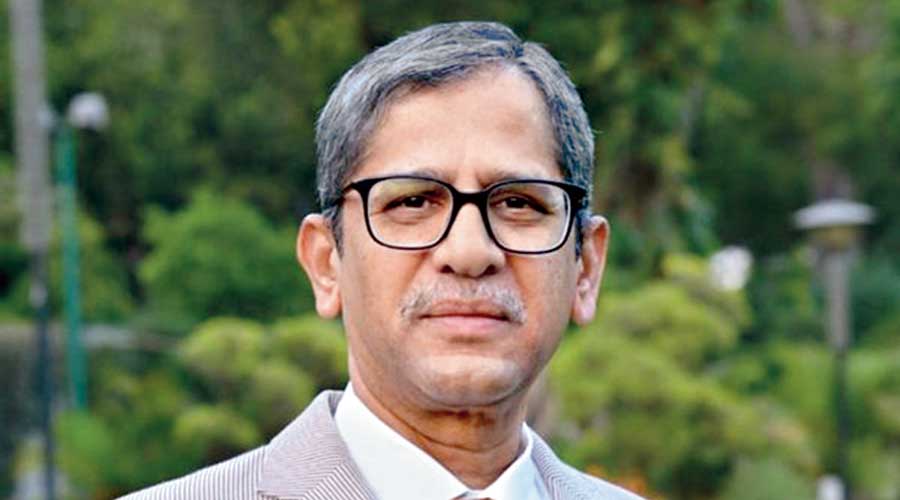Visionaries may be mortal. But their visions are meant to endure. This could be one way of interpreting the seminal message that was conveyed by the Chief Justice of India at an event organized by the Ramakrishna Mission. N.V. Ramana iterated the need for ‘contemporary India’ — perhaps New India should also pay attention — to imbibe tolerance and shun the spectre of sectarianism: these were some of the elementary lessons that were imparted by Swami Vivekananda. Indeed, as was pointed out by
Mr Ramana, the richness of the Swami’s legacy can be attributed not only to its humane nature —compassion and respect for all are integral to his philosophy — but also his ability to communicate the fundamental elements of the philosophy of Vedanta in a practical way.
None can deny that Narendra Modi’s India is in dire need of embracing Vivekananda’s vision, which, significantly, converges with some of the principles of constitutionalism that lie at the heart of India’s democratic project. This is so because the political ascendancy of the Bharatiya Janata Party has coincided with an unprecedented strain on India’s pluralist, accommodating social fabric. In the last few years, the vilification of Muslims as well as of socially disadvantaged groups has, shockingly, become commonplace, and is manifested through lynchings, segregation, everyday indignities and other kinds of discrimination. Neither can it be said that the powers that be have always been innocent in this crazed witch-hunt. The persistent communal tenor in the speeches of the chief minister of Uttar Pradesh or the BJP’s willingness to milk the objectionable remark — that of drug jihad — made by a member of the clergy in Kerala reveal this complicity. The rise in communalism has attracted international attention and censure. The International Religious Freedom Report 2021, for instance, tagged India as a ‘country of particular concern’.
The turn towards a majoritarian democratic polity is, however, not the only concern. What sectarianism — abhorred by Vivekananda and other apostles of co-existence — has brought in its wake is the threat of distortion of the wisdom of luminaries. There have been various attempts to co-opt Vivekananda’s legacy by the fraternity that confuses Hindutva, an ideological and political project, with Hinduism. This appropriation must be resisted at every level — social, cultural and academic. Otherwise, India would fail to preserve some of the basic teachings of Vivekananda who espoused the causes of tolerance — what else did he speak about in his famous Chicago address? The best way to commemorate Vivekananda would be for India to shun cosmetic shows of veneration for its sages: it should instead, as the CJI said, heed the Swami’s call for universal inclusion.











